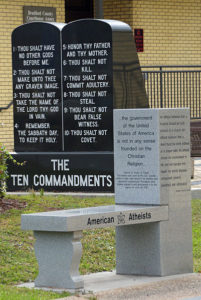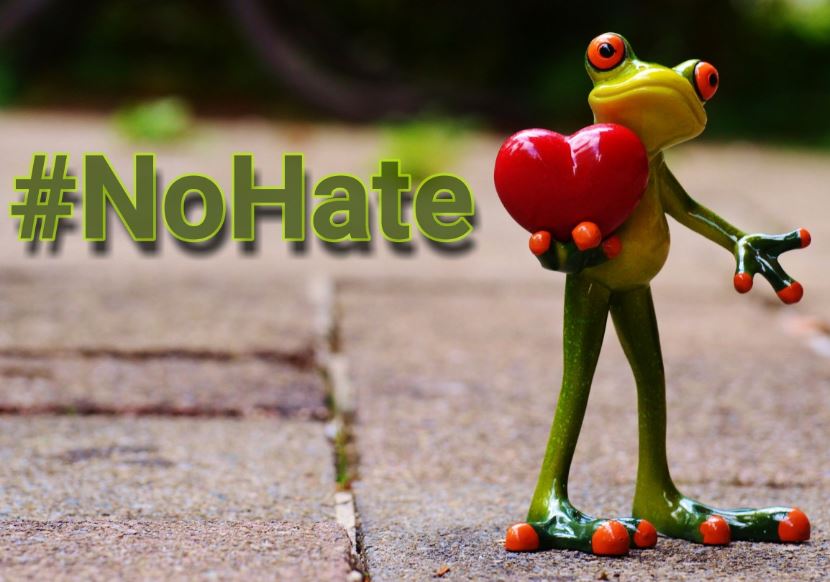For those unfamiliar with the term “DMCA,” it refers to the “Digital Millennium Copyright Act.” As one of the Internet’s most popular video sharing sites, users of YouTube submit videos covering topics ranging from surprised kittens to, yes, religion. Along with politics, religion is one of the world’s most notoriously controversial topics. Unsurprisingly, there are individuals who are opposed to atheism and dislike videos about the topic. Consequently, they are filing false DMCA claims against atheist videos.
 Essentially, they are claiming that the videos are engaging in copyright infringement, which can lead to YouTube removing them from the site. The catch is, of course, that there is no copyright infringement occurring. They merely want to utilize false DMCA claims to engage in censorship.
Essentially, they are claiming that the videos are engaging in copyright infringement, which can lead to YouTube removing them from the site. The catch is, of course, that there is no copyright infringement occurring. They merely want to utilize false DMCA claims to engage in censorship.
Such instances of filing false DMCA claims is not merely childish behavior. It involves an individual or individuals actively seeking to censor the free speech of others. This is unacceptable in a democratic society. YouTube sets clear expectations for its users and actively seeks to remedy situations where false DMCA claims occur. While they may take a censor-first, review-later approach, that is not inconsistent with the law and is likely in their financial interests. The culprits are the individuals making the claims.
They can go somewhere else and talk about atheism?
Sure, but YouTube set standards that provided atheists with reason to expect an atmosphere that allows their videos. Imagine a sign on a bar that says “everyone welcome.” Once an atheist enters, someone says they are a notorious criminal (who are a noted exception to the open-door policy). This lie gets them removed from the bar. Sure, they can go somewhere else, but that’s not the point. How far does the next bar have to be before they are being treated unjustly? Five feet? Five miles? This is a matter of principle. In fact, many would argue that even a private establishment should not be permitted to prevent any religious individual from entering “if they so choose.” There are nuances to this view that are context-dependent (a male-only support group differs from a bar that refuses minorities). Even if one doesn’t want to infringe on the rights of private establishments to discrimination, YouTube is an “everyone welcome” bar, for the most part. Atheists had the right to expect freedom from censorship given that they were obeying the rules of the site.
What legal punishments, if any, should occur? It’s not up to one individual to decide, except perhaps a judge. The point is that if a situation were extreme enough, it could warrant legal action. Assuming that is the case here, should it be considered a hate crime? The answer is: probably not.
There are many reasons for this, one being the controversial status of hate crime legislation. Some have asked, “aren’t all crimes done out of hate?” Alternatively, “why should a crime be judged more severely if hate is a motivate?” More specifically, “hatred” isn’t considered against the law, but it is considered a grounds for increasing a sentence. What is the rationale for this, one might ask? This is a complex debate, but to make things simpler, one can assume hate crime legislation is reasonable.
If that’s the case, there is another issue worth bringing up. Hate crimes cover things like religious background, race, culture, etc. Discrimination should apply to things that a person “can’t or should not have to change” and “have no moral significance.” Someone having black skin or white skin doesn’t hurt the world. They can’t change it, and they shouldn’t have to change. Someone who is sexually attracted to children (and act on that attraction) might be born that way, but they certainly create moral problems and “should” have to change if they invent an easy cure – either that or removed from the general population. Is hatred towards such people justified? Probably, if hatred is ever justified it’s as good a case as any to demonstrate justified hatred.
People hate for a variety of reasons.
It’s an emotional reaction, in many cases, and punishing it might be equivalent to punishing someone who cries for a ridiculous reason. “That’s nothing to cry about,” someone might say. They might be right, but there is no reason to believe a system of punishment will work to prevent such emotions.
 But even if hate is being punished, what things fit the criteria of “not compelling someone to change or having negative moral consequences?”
But even if hate is being punished, what things fit the criteria of “not compelling someone to change or having negative moral consequences?”
Atheism is probably not something with negative moral consequences if, as many atheists believe, there is no God. Or at least, the moral consequences would not be negative. Religious people sometimes see things in a different way. We don’t let Nazis get out of hate crimes because they think from a different perspective. And no, religious people are not Nazis. It’s just an example being used to illustrate how the law does not usually accept “cultural or personal justifications” as being valid legal defenses. A culture that abuses women can’t come to America, engage in that behavior, and then argue that they deserve special treatment because they have different values. Even the most immigrant-friendly countries aren’t that accommodating to different cultures.
Where is this going?
Well, religious beliefs aren’t like race. If people can change them, why should they be protected from hatred? Many beliefs are abhorrent by the moral standards of most people. Some religions believe in terrible things and, if not for legal prevention, would act on those beliefs. Some act on them anyway. If people hate someone for “what they believe,” what’s the justification for calling their crimes worse than others? People who believe in polygamy, male superiority, the right to abuse children, human sacrifice, and other things are, to some people, “deserving of hatred.”
If someone waits until a person acts on their beliefs, does it become a hate crime? A religion that says all single mothers should be killed has a radical follower act on that doctrine. After the crime is committed, does the son have a right to hate their mother’s killer? After all, he acts on beliefs that he hates. What if the law made the actions of said religion allowed? Is it different? Can the son be charged with a hate crime because he judged the “legal actions” of another person to “deserve hatred.” Anything deserving hatred, apparently, would automatically be illegal? The law isn’t that efficient.
The false claims against the DMCA are questionable even under current legislation.
The crimes committed are not violent crimes, which are those that are eligible for additional hate crime charges. A sophisticated lawyer might change the law, but in most courts, it’s unrealistic to believe a hate crime charge would succeed in such a case. It probably wouldn’t get past a preliminary hearing. The other criticism, as focused on earlier, is that the status of religious beliefs as falling under “hate crime legislation” is questionable given that beliefs are selected by individuals of their own free will. There may be cases of irrational hatred that could qualify anything from religious to political crimes as “hate speech,” but the majority of people opposed to religious groups display hatred for reasons that the majority of society has yet to deem universally legitimate or universally illegitimate. By contrast, the law clearly takes a stance on the legitimacy of “logical arguments for hating specific races.” There is no reason to hold the same view with respect to religious or political viewpoints.






